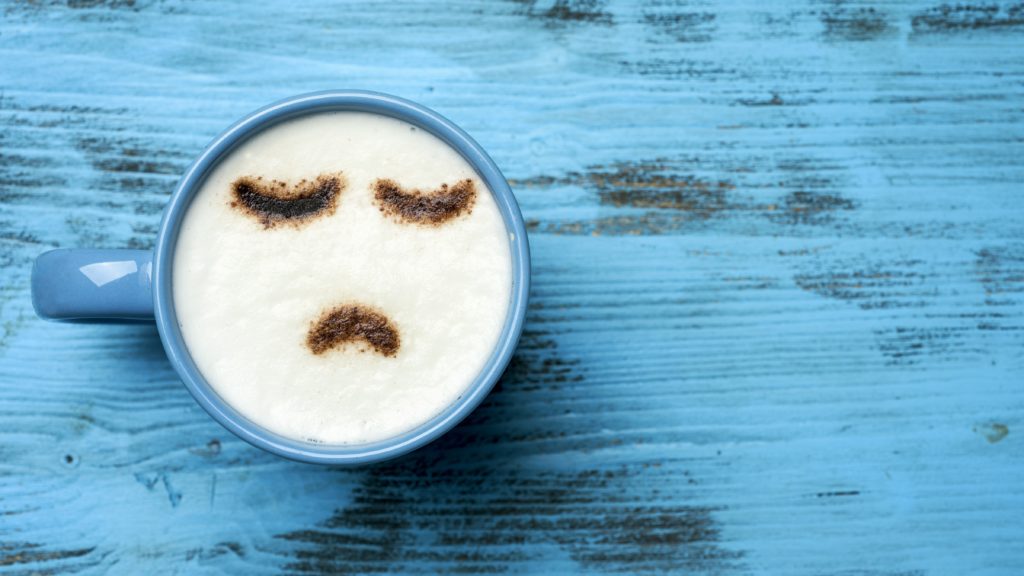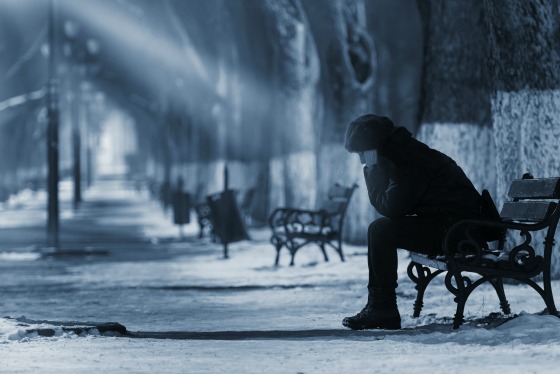The Problem with Blue Monday
No doubt you’ve heard of ‘Blue Monday’. The third Monday in January which is supposedly the most “depressing” day of the year, is widely advertised annually by many companies and has become a yearly PR event used to promote and sell things that are claimed to help our mental health and wellbeing. But the truth of the matter is, there is no such thing as a ‘most depressing day of the year’.
The origin of Blue Monday
Blue Monday first cropped up in 2005, when psychologist Cliff Arnall produced a formula using things such as weather conditions, debt levels, time since Christmas, failing new year’s resolutions and the fact we all supposedly hate Mondays, to calculate the most “depressing” day of the year. The ‘science’ behind this has been debunked of course, as the work was originally paid for by a travel company, Sky Travel, to help increase the sales of holidays.
The issue with Blue Monday

In the mental health sector, there has for many years been a growing backlash against ‘Blue Monday’. The mental health charity Mind’s Head of Information Stephen Buckley stated, “Blue Monday contributes to damaging misconceptions about depression and trivialises an illness that can be life-threatening. 1 in 6 people will experience depression during their life. It can be extremely debilitating with common symptoms including inability to sleep, seeing no point in the future, feeling disconnected from other people and experiencing suicidal thoughts.”
There is a marked difference between temporary feelings of sadness or anxiousness, which we all feel from time to time, and mental health problems, like depression, that people suffer from day in and day out, that can impact their ability to take pleasure from day-to-day life. Also, the idea that depression can somehow be calculated by a formula is seen by many to trivialise their lived experience.
Our mental health can be affected by our environment and so there are several reasons why people may be suffering from mental health problems and depression during this time of the year, but this is not just for one day. Some people suffer from Seasonal Affective Disorder (SAD) which leads to symptoms of depression that come and go ‘seasonally’. This is due to the colder weather and shorter, darker days during winter which impacts our sleeping and eating habits as well as our mood, leading those suffering to feel down, irritable, lack energy, find it difficult to get up and lose interest in everyday activities.

Things that are good for our mental health, such as exercise, are more difficult during the winter when it’s cold outside and the days are short. Many of us also overindulge over Christmas, leading to weight gain, which can impact our self-worth and negatively affect our mental health. Also, a lot of us are lacking money in January after the expense of Christmas and many find themselves in increasing debt. Many of these factors can impact our mental health, however, they cannot be transferred into a calculation that condenses collective mental health into just one day.
Stephen Buckley continues that “There is no credible evidence to suggest that one day, in particular, can increase the risk of people feeling depressed. There are of course certain things that may make people feel down at this time of year, such as post-Christmas financial strains, broken New Year’s Resolutions, bad weather and short daylight hours. However, depression is not just a one-day event.”

The major risk factors for mental ill-health such as trauma, loneliness, ongoing stress, poverty, and physical ill-health are not confined to one month, let alone just one day. Although some people may find the winter months harder, mental health affects people all year round. The Mental Health Foundation largely recognises and agrees with concerns raised around ‘Blue Monday’, whilst also acknowledging that it can represent a chance to break down stigma and raise awareness surrounding mental health. Mental health charity Mind has tried to combat the negative connotations of ‘Blue Monday’ by turning it into ‘Blue Any Day’.
“We want to remind people that depression can happen at any time and that Mind is available to help people throughout the year.” Said Stephen Buckley at Mind.
Brew Monday 2020
The Samaritans have arranged a ‘Brew Monday’ event which encourages people to reach out to friends, colleagues, family members, and neighbours by offering a cuppa, a chat, and a biscuit or some cake. The idea is to help combat mental health by getting people together to connect and talk about the ups and downs of life. Loneliness can have a big impact on your mental health, and many feel as though they cannot reach out to anyone or talk about their mental health issues. Brew Monday is helping to combat these issues by showing it is okay to talk to people about mental health issues, and offering people the opportunity to have a friendly chat with someone so they don’t feel so alone.

Samaritans are encouraging everyone to arrange their own Brew Monday 2020 event any Monday in January or February or just any day that’s good for them. Sign up to host your own Brew Monday event at work, at home, at school, the gym, a hall, church or anywhere that suits you, and you will receive your free fundraising kit. This includes posters inviting people to your event, ideas on how to raise money and tips to help talk about mental health. At your event, you can offer tea and coffee and sell biscuits and cakes to help raise money for the Samaritans, who offer those suffering from mental health issues the opportunity to talk to someone at any time of the day or night.
Hosting an event can encourage those around you to talk about their mental health and can help those suffering to get the help they need. It is also a great way to get to know colleagues and neighbours and break down the stigma associated with mental health. Your donations could even help save a life.
How you can help combat mental health
Although Blue Monday is complete pseudoscience and there is no such thing a one depressing day a year, it can help to break down the stigma associated with mental health and raise awareness for this issue through things like #BlueAnyDay and #BrewMonday2020. It is important to remember that mental health issues, like depression, affect hundreds of thousands of people every day, year-round. There are many things people can do to help combat the effects of mental health to help themselves and those around them suffering.

Kays Medical offers Mental Health First Aid Courses, which can help employers combat mental health in the workplace. The course can help those who take part to identify individuals who could be at risk or suffering and help them and also shows them ways to help combat mental health in the workplace by implementing positive changes. Why not arrange your own Brew Monday 2020 event in your workplace too? By helping to combat mental health in the workplace you can help to create a happier and healthier workforce, breakdown the stigma associated with mental health and get more people talking.